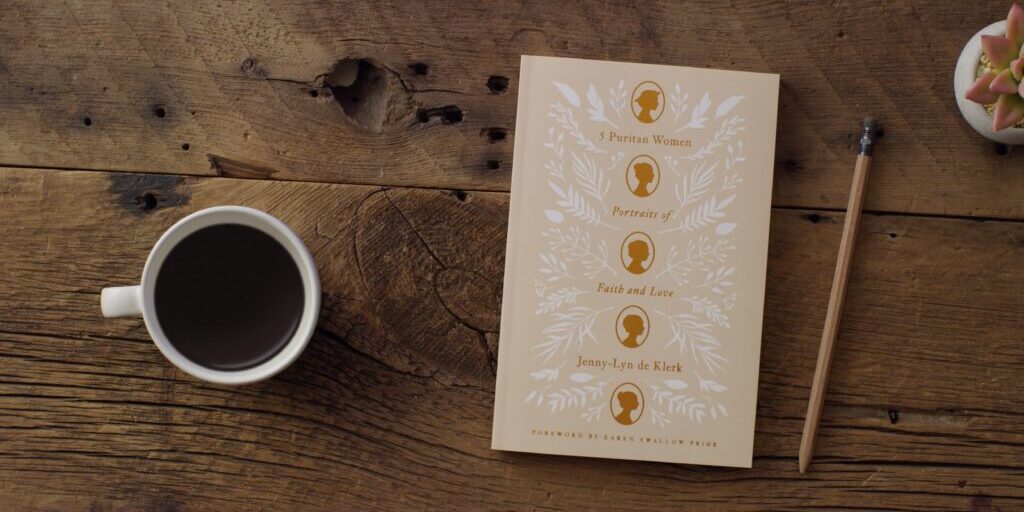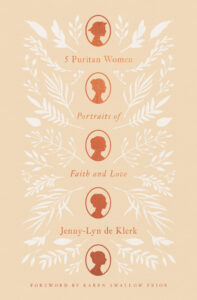
Sparking a Reading Revival
P uritan women are valuable subjects of study for believers today—you and me—because they had great insight into the Christian life and good instincts regarding matters of human relationships. This is partly because the Puritans as a whole stand out in church history for being particularly skilled at applying the Bible to all areas of existence, making them some of the best figures to consult on various topics of Christian living even hundreds of years later. As Packer said, they had a spiritual maturity—“a compound of wisdom, goodwill, resilience, and creativity”—that was born out of hardship and is often lacking in our time of “ease and luxury.”[1] And, I would add, Puritan women frequently wrote about aspects of daily life, thus revealing to us what their relationships with God, family, church, and society were really like—the good, the bad, the ugly, and also the beautiful. As Mary Rich said about the godly women in her time, they may have looked “plain” on the outside, but they were “velvet within.”[2]
uritan women are valuable subjects of study for believers today—you and me—because they had great insight into the Christian life and good instincts regarding matters of human relationships. This is partly because the Puritans as a whole stand out in church history for being particularly skilled at applying the Bible to all areas of existence, making them some of the best figures to consult on various topics of Christian living even hundreds of years later. As Packer said, they had a spiritual maturity—“a compound of wisdom, goodwill, resilience, and creativity”—that was born out of hardship and is often lacking in our time of “ease and luxury.”[1] And, I would add, Puritan women frequently wrote about aspects of daily life, thus revealing to us what their relationships with God, family, church, and society were really like—the good, the bad, the ugly, and also the beautiful. As Mary Rich said about the godly women in her time, they may have looked “plain” on the outside, but they were “velvet within.”[2]
Thus, this book seeks to retell the stories of five Puritan women as they told them—rather than as we might have expected or wanted them to be told—in order to appreciate who they really were. By doing this, it is my hope that we will not only learn about them but also learn about ourselves, foster a sense of comradery among Christian women today, and open our minds to the existence of other women who deserve to be studied. Now you may be asking, “Isn’t this a book about Puritan women, not other women today or in the past?” Yes. But there are some wonderful ripple effects of such a study.
First, by reading their stories, we will be able to better interpret our own stories, because—as the novel-readers, artist-lovers, and movie-goers of the world will tell you—there are lessons that cannot be learned (or at least are hard to learn) from direct instruction. Sometimes, it is only when we take a step back from our lives and enter the life of another person—messy and complex as it always is—that we are able to gain the perspective needed to think creatively about our own greatest problems and deepest desires, especially as they relate to the people we love most in this world. More than this, because their stories are true, real-life ones, reading them drums into our brains that God is in control and we will be okay. Seeing the spiritual success of women in church history is like seeing a science experiment done over and over again with different variables but the same results—it shows us that yes, it can be done! You can get through heartache, slander, illness, the death of a loved one, war, anything, because so many women, filled with the Holy Spirit, have already done it.
Further, I hope that Christian women who read this book will be encouraged to see themselves as part of a whole, that is, all women of the Christian faith. The reason I think this is especially valuable right now is because the topic of gender roles has become so volatile and divisive that it has wearied half of the church and turned sisters into strangers, even enemies. Though these debates are often conducted by male theologians and biblical scholars, it is usually women—both egalitarians and complementarians—who end up bearing the emotional burden of the debates. Having who you are as a person constantly discussed by other people in a contentious way can make you feel on edge about your own identity. These debates can also pit us against each other by mak- ing a secondary theological issue seem like the most important issue to you because you are included in the debated topic, thus permanently separating you from those on the other side.
So what does this have to do with reading about Puritan women? In my experience, I’ve found that one way to counteract the negative effects of these debates about gender is to celebrate how God used all sorts of women in the past to build up his church. What happened in history happened, whether we like it or not; the women who existed in history existed, whether they were who we hoped they would be or not. And it is these real women from the actual past—who came from various backgrounds, held to different theological convictions, made mistakes, and dealt with gender controversies of their own time—that passed on the faith to the next generation. Christian women have so much more to share with each other than they have to fight about, and I hope this book can help us embrace that fact and thus develop a deeper appreciation and respect for each other as well as a sense of connection with our spiritual heritage.
Finally, by reading about Puritan women, we not only gain an understanding of who they were as a group, but also get a taste of the vast contributions of women throughout church history. You see, not all women were exactly the same—not even these five Puritan women, who had much in common. This means that the more we read women’s writings with our own eyes, the more our minds will be opened to the existence of lots of other women, who did lots of different things and wrote about lots of different things! So, in this book you will not only meet a handful of Christians who lived over four-hundred years ago but also be prompted to consider how half of God’s people have built up the church in ways that we may have not noticed before. If this is the first time you’re reading about women in church history, I expect it will not be the last.
The above excerpt is from 5 Puritan Women: Portraits of Faith and Love by Jenny-Lyn de Klerk. Crossway, 2023. Used by permission.
[1] J. I. Packer, A Quest for Godliness: The Puritan Vision of the Christian Life (Wheaton, IL: Crossway, 1990), 22.
[2] Mary Rich and Raymond A. Anselment, The Occasional Meditations of Mary Rich, Countess of Warwick (Tempe, AZ: Arizona Center for Medieval and Renaissance Studies, 2009), 73. Used by permission.

